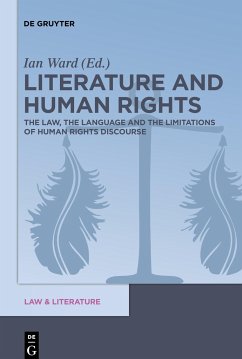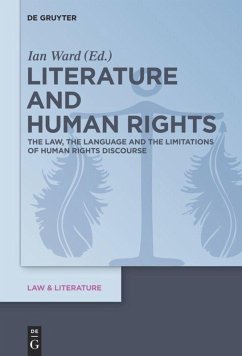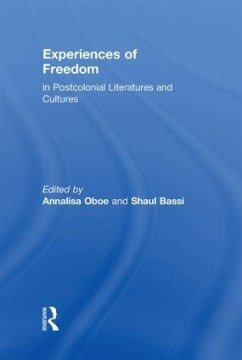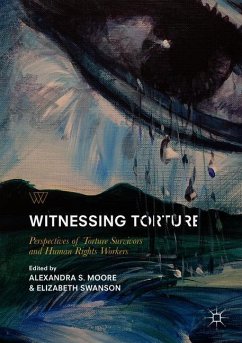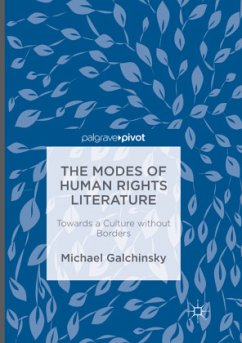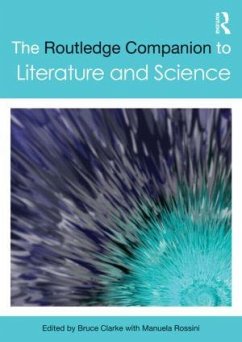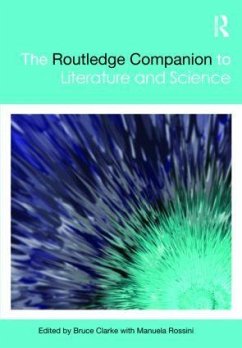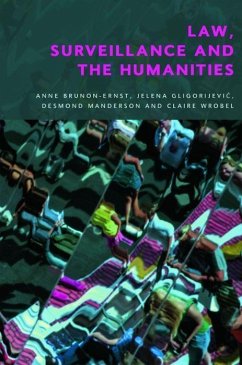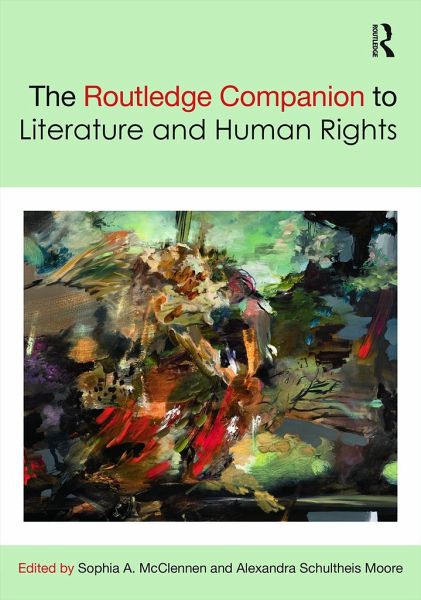
The Routledge Companion to Literature and Human Rights
Versandkostenfrei!
Versandfertig in über 4 Wochen
303,99 €
inkl. MwSt.

PAYBACK Punkte
152 °P sammeln!
The Routledge Companion to Literature and Human Rights provides a comprehensive, transnational, and interdisciplinary map to this emerging field, offering a broad overview of human rights and literature while providing innovative readings on key topics. The first of its kind, this volume covers essential issues and themes, necessarily crossing disciplines between the social sciences and humanities. Sections cover:subjects, with pieces on subjectivity, humanity, identity, gender, universality, the particular, the bodyforms, visiting the different ways human rights stories are crafted and formed...
The Routledge Companion to Literature and Human Rights provides a comprehensive, transnational, and interdisciplinary map to this emerging field, offering a broad overview of human rights and literature while providing innovative readings on key topics. The first of its kind, this volume covers essential issues and themes, necessarily crossing disciplines between the social sciences and humanities. Sections cover:
subjects, with pieces on subjectivity, humanity, identity, gender, universality, the particular, the bodyforms, visiting the different ways human rights stories are crafted and formed via the literary, the visual, the performative, and the oralcontexts, tracing the development of the literature over time and in relation to specific regions and historical eventsimpacts, considering the power and limits of human rights literature, rhetoric, and visual culture
Drawn from many different global contexts, the essays offer an ideal introduction for those approaching the study of literature and human rights for the first time, looking for new insights and interdisciplinary perspectives, or interested in new directions for future scholarship.
Contributors: Chris Abani, Jonathan E. Abel, Elizabeth S. Anker, Arturo Arias, Ariella Azoulay, Ralph Bauer, Anna Bernard, Brenda Carr Vellino, Eleni Coundouriotis, James Dawes, Erik Doxtader, Marc D. Falkoff, Keith P. Feldman, Elizabeth Swanson Goldberg, Audrey J. Golden, Mark Goodale, Barbara Harlow, Wendy S. Hesford, Peter Hitchcock, David Holloway, Christine Hong, Madelaine Hron, Meg Jensen, Luz Angélica Kirschner, Susan Maslan, Julie Avril Minich, Alexandra Schultheis Moore, Greg Mullins, Laura T. Murphy, Hanna Musiol, Makau Mutua, Zoe Norridge, David Palumbo-Liu, Crystal Parikh, Katrina M. Powell, Claudia Sadowski-Smith, Mark Sanders, Karen-Magrethe Simonsen, Joseph R. Slaughter, Sharon Sliwinski, Sidonie Smith, Domna Stanton, Sarah G. Waisvisz, Belinda Walzer, Ban Wang, Julia Watson, Gillian Whitlock and Sarah Winter.
subjects, with pieces on subjectivity, humanity, identity, gender, universality, the particular, the bodyforms, visiting the different ways human rights stories are crafted and formed via the literary, the visual, the performative, and the oralcontexts, tracing the development of the literature over time and in relation to specific regions and historical eventsimpacts, considering the power and limits of human rights literature, rhetoric, and visual culture
Drawn from many different global contexts, the essays offer an ideal introduction for those approaching the study of literature and human rights for the first time, looking for new insights and interdisciplinary perspectives, or interested in new directions for future scholarship.
Contributors: Chris Abani, Jonathan E. Abel, Elizabeth S. Anker, Arturo Arias, Ariella Azoulay, Ralph Bauer, Anna Bernard, Brenda Carr Vellino, Eleni Coundouriotis, James Dawes, Erik Doxtader, Marc D. Falkoff, Keith P. Feldman, Elizabeth Swanson Goldberg, Audrey J. Golden, Mark Goodale, Barbara Harlow, Wendy S. Hesford, Peter Hitchcock, David Holloway, Christine Hong, Madelaine Hron, Meg Jensen, Luz Angélica Kirschner, Susan Maslan, Julie Avril Minich, Alexandra Schultheis Moore, Greg Mullins, Laura T. Murphy, Hanna Musiol, Makau Mutua, Zoe Norridge, David Palumbo-Liu, Crystal Parikh, Katrina M. Powell, Claudia Sadowski-Smith, Mark Sanders, Karen-Magrethe Simonsen, Joseph R. Slaughter, Sharon Sliwinski, Sidonie Smith, Domna Stanton, Sarah G. Waisvisz, Belinda Walzer, Ban Wang, Julia Watson, Gillian Whitlock and Sarah Winter.



